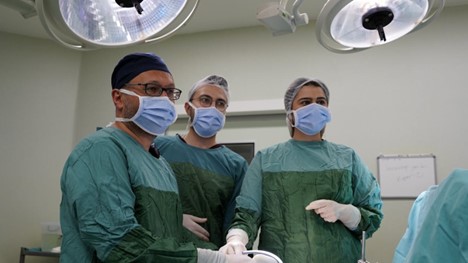Is Uncured Bacon Truly Healthier? Unveiling the Facts
Bacon, oh bacon! The sizzling, savory delight that has captured the hearts and taste buds of many. In recent years, a trend toward healthier eating has led to the rise of uncured bacon as a supposed better alternative. But is it really all it’s cracked up to be? In this blog post, we’re going to dive into the world of uncured bacon and uncover the truth about whether it’s truly a healthier choice or just another indulgence in disguise.
The Uncured Bacon Hype:
Uncured bacon burst onto the scene with promises of being a healthier option compared to its traditional cured counterpart. But what exactly is uncured bacon? The term “uncured” might give the impression that it’s free from the curing process, which often involves the use of sodium nitrites and nitrates. However, the reality is a bit more nuanced.
Curing vs. Uncured: The Inside Story:
Cured bacon is typically treated with a mixture of:
- salt
- sugar
- sodium nitrites or nitrates
These additives not only help preserve the meat but also give it that familiar pink color and distinct flavor. On the other hand, uncured bacon is marketed as being free from synthetic additives, using natural alternatives like celery juice or powder to achieve a similar effect.
The Nitrite Debate:
The use of nitrites in cured meats has sparked debates about potential health risks. Nitrites can form nitrosamines, compounds that have been linked to an increased risk of cancer. However, the levels of nitrites in cured meats are regulated and have been significantly reduced over the years to minimize this risk. In the case of uncured bacon, while it avoids synthetic nitrites, it doesn’t necessarily mean it’s entirely nitrite-free. Natural sources like celery can still contain nitrites, and they can also form nitrosamines under certain conditions.
Breaking Down the Nutrition:
When it comes to nutritional content, uncured bacon isn’t dramatically different from its cured counterpart. It’s still rich in saturated fat and sodium, which are the main factors contributing to bacon’s reputation as an indulgence. While uncured bacon might have slightly lower levels of sodium due to the absence of synthetic nitrites, it’s not a significant enough difference to label it a health food.
Calories and Portion Control:
One of the factors often overlooked in the bacon discussion is portion size. Both cured and uncured bacon can be calorie-dense, and indulging in large quantities can quickly add up. Practicing portion control is key to enjoying bacon as part of a balanced diet.
The Bottom Line: Uncured Bacon is Still Bacon:
In the quest for healthier eating, it’s important not to fall for marketing buzzwords that might create a false sense of health benefits. While uncured bacon might avoid synthetic additives, it’s not a nutritional game-changer. It’s still a processed meat that’s high in saturated fat and sodium, factors that should be consumed in moderation.
To learn more, check out this summary from The Washington Post.
The allure of healthier alternatives can sometimes lead us astray from making truly beneficial dietary choices. Uncured bacon, while it might seem like a better option, is still bacon at its core. Rather than getting caught up in the hype, let’s focus on moderation and making informed decisions about our food choices. So go ahead, savor that crispy slice of bacon, but remember that balance is key to enjoying it without compromising your health. It’s a fantastic idea also to incorporate supplements from the Asher Longevity Institute. By doing so, we can enhance your body’s overall health and well-being.




